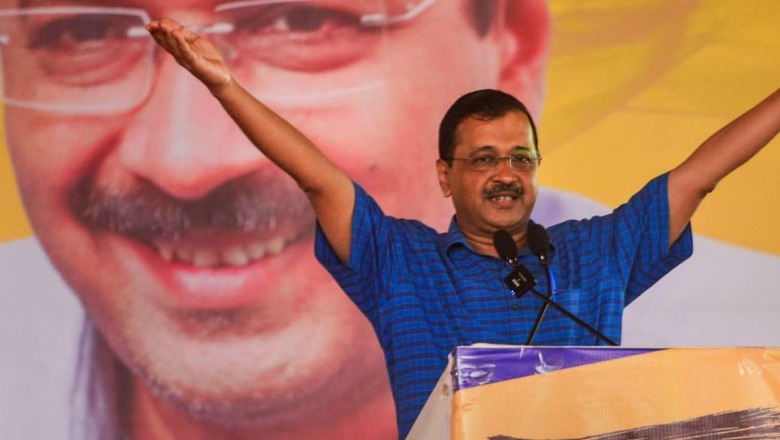
views
Delhi Chief Minister Arvind Kejriwal has been summoned by the Enforcement Directorate in connection with the liquor policy scam case. This is the sixth ED summon to the Delhi CM in the case.
Kejriwal has been asked to appear before the agency at its headquarters in the national capital. He has not joined the investigation so far even after five summons in the case in which two of his senior party leaders– Manish Sisodia and Sanjay Singh– are behind bars.
Earlier on February 7, a Delhi court asked Kejriwal to appear before it on February 17 on a complaint filed by the ED for skipping summons in an excise policy-linked case and noted that prima facie the AAP chief was “legally bound” to comply.
Additional Chief Metropolitan Magistrate Divya Malhotra said that Kejriwal “purportedly failed” to appear before the investigating agency Enforcement Directorate and summoned him for the offence under Section 174 of IPC (non-attendance in obedience to an order from public servant).
In its complaint, the ED alleged that the Delhi chief minister intentionally did not want to obey the summons and kept on giving “lame excuses.” If a high-ranking public functionary like him disobeyed the law, it would “set a wrong example for the common man i.e. the Aam Aadmi,” the agency said.
Kejriwal Skipped Five Summonses,
Kejriwal on February 2 skipped the ED’s fifth summons, prompting the agency to file a fresh complaint case against him for non-compliance with its summons.
The Aam Aadmi Party (AAP) convenor had earlier written a letter to the ED, terming the summonses as “illegal and politically motivated”. He alleged they were aimed at preventing him from campaigning in elections.
In its complaint, the ED claimed that in order to unearth the role of others, including Kejriwal, and to trace further proceeds of crime, further investigation is ongoing for which he was summoned for probe on numerous occasions.
“Instead of Arvind Kejriwal, who was legally bound to attend in person as required under the aforesaid summons at the place and time mentioned in the summons which were issued by the complainant who is a public servant, he intentionally omitted to obey the summons and intentionally omitted to attend at the place or time mentioned in the summons,” the complaint claimed.
It added that from the replies given by Kejriwal, it is manifest that his intention was to “disobey the summons and to create a false pretext to camouflage” such intention of disobedience of summons.
The agency claimed that Kejriwal “intentionally disobeyed” each summons “making each of such omission or disobedience a separate offence”.
The complaint claimed that Kejriwal committed three separate offences by intentionally omitting and failing to appear upon the summons on October 30 and December 18 and 22, last year. It said the ED may file a separate complaint against Kejriwal for evading summons on January 12, 2024.
Kejriwal got ED’s first summon to appear before the agency on October 1, 2023, second on November 2, third on December 21, fourth on January 3, 2024 and fifth on January 18.
Allegations in Delhi’s Excise Policy
It is alleged that the Delhi government’s excise policy for 2021-22 to grant licences to liquor traders allowed cartelisation and favoured certain dealers who had allegedly paid bribes for it, a charge strongly refuted by the AAP.
The policy was subsequently scrapped and the Delhi lieutenant governor recommended a CBI probe, following which the ED registered a case under the PMLA.
(With PTI inputs)



















Comments
0 comment